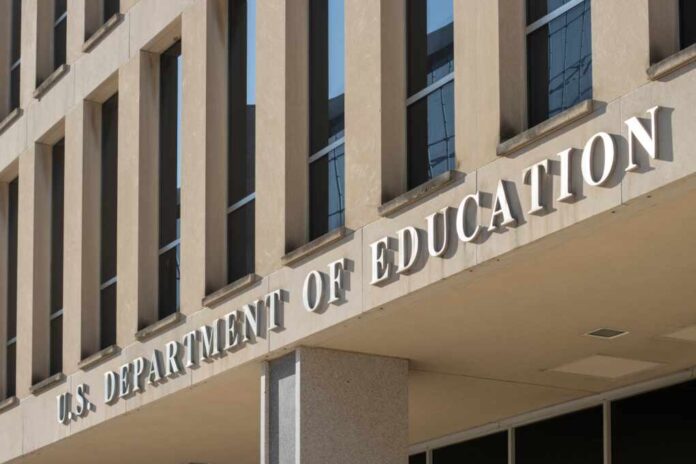
The Department of Education has rescinded a massive $37.7 million fine against Grand Canyon University, ending a contentious battle over the Christian institution’s nonprofit status.
At a Glance
- The U.S. Department of Education has completely withdrawn its record $37.7 million fine against Grand Canyon University
- The fine was part of a years-long legal battle regarding GCU’s nonprofit status
- GCU, based in Phoenix, is one of America’s largest Christian universities
- The case was dismissed with no findings, fines, liabilities, or penalties against the university
- The university released a statement on May 17 celebrating the outcome
Federal Education Department Reverses Massive Fine
The Education Department has officially rescinded its $37.7 million fine against Grand Canyon University, marking the end of a prolonged legal dispute that centered on the Phoenix-based Christian institution’s nonprofit status. This fine, which had been the largest ever imposed on a higher education institution by the department, became a focal point in discussions about federal oversight of religious educational establishments. The reversal represents a significant victory for GCU in its efforts to maintain its operational independence while navigating federal regulations.
Background of the Dispute
The conflict between GCU and the Department of Education stemmed from disagreements over the university’s classification as a nonprofit entity. The Department had previously alleged that GCU failed to properly comply with federal standards related to this status. These allegations potentially involved issues such as the management of educational funds or reporting practices. The fine, imposed during the Biden administration, had raised concerns among supporters of religious education about possible overreach in federal regulation of faith-based institutions.
The size of the fine—$37.7 million—was unprecedented in the context of higher education penalties, making the case particularly noteworthy. Grand Canyon University has maintained throughout the process that its operations were in compliance with applicable regulations and that its nonprofit status was legitimate. The university, which serves as one of the largest Christian institutions of higher learning in the United States, has a significant presence both in Phoenix and through its extensive online educational programs.
Complete Vindication for the University
According to statements from both the Department of Education and GCU, the dismissal of the case was comprehensive, leaving the university with no findings of wrongdoing or financial penalties. This outcome represents a complete reversal of the department’s earlier position and effectively validates GCU’s stance throughout the dispute. The resolution came after extensive legal proceedings and negotiations between university representatives and federal officials, highlighting the complex interplay between educational institutions and government regulatory bodies.
Implications for Religious Educational Institutions
The reversal of this substantial fine carries significant implications for religious educational institutions across the country. Many observers view this outcome as a potential precedent regarding the limits of federal authority over faith-based colleges and universities. The case has spotlighted tensions that can arise when government oversight responsibilities intersect with the distinctive operational philosophies that characterize religious educational establishments. For administrators at similar institutions, GCU’s successful resolution may provide a roadmap for navigating their own regulatory challenges.
The university formally announced the favorable outcome in a statement released on May 17, expressing satisfaction with the resolution. The statement emphasized that the dismissal came without any adverse findings against GCU, allowing the institution to continue its educational mission without the burden of the previously imposed penalty. With this legal battle now concluded, GCU can refocus its resources and attention on its primary educational objectives rather than on defending itself against federal enforcement actions.
Future Considerations
This case raises broader questions about the consistency and clarity of regulatory frameworks governing educational institutions, particularly those with religious affiliations. The reversal indicates potential reconsideration within federal agencies about appropriate approaches to oversight and enforcement. For policymakers, the GCU case may prompt reflection on how to balance necessary accountability measures with respect for the distinctive character and mission of faith-based educational institutions. The outcome may influence future interactions between the Department of Education and similar universities.
As GCU moves forward, the resolution of this case removes a significant financial threat that had been hanging over the institution. The university’s ability to successfully challenge the substantial fine demonstrates the importance of determined legal advocacy when educational institutions believe they have been subjected to unwarranted penalties. For the Christian education community more broadly, GCU’s vindication may be seen as an affirmation of religious institutions’ rights to operate according to their founding principles while still engaging with federal educational systems.

























